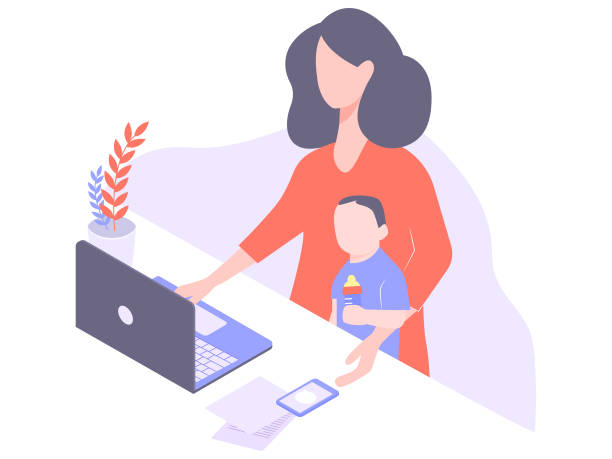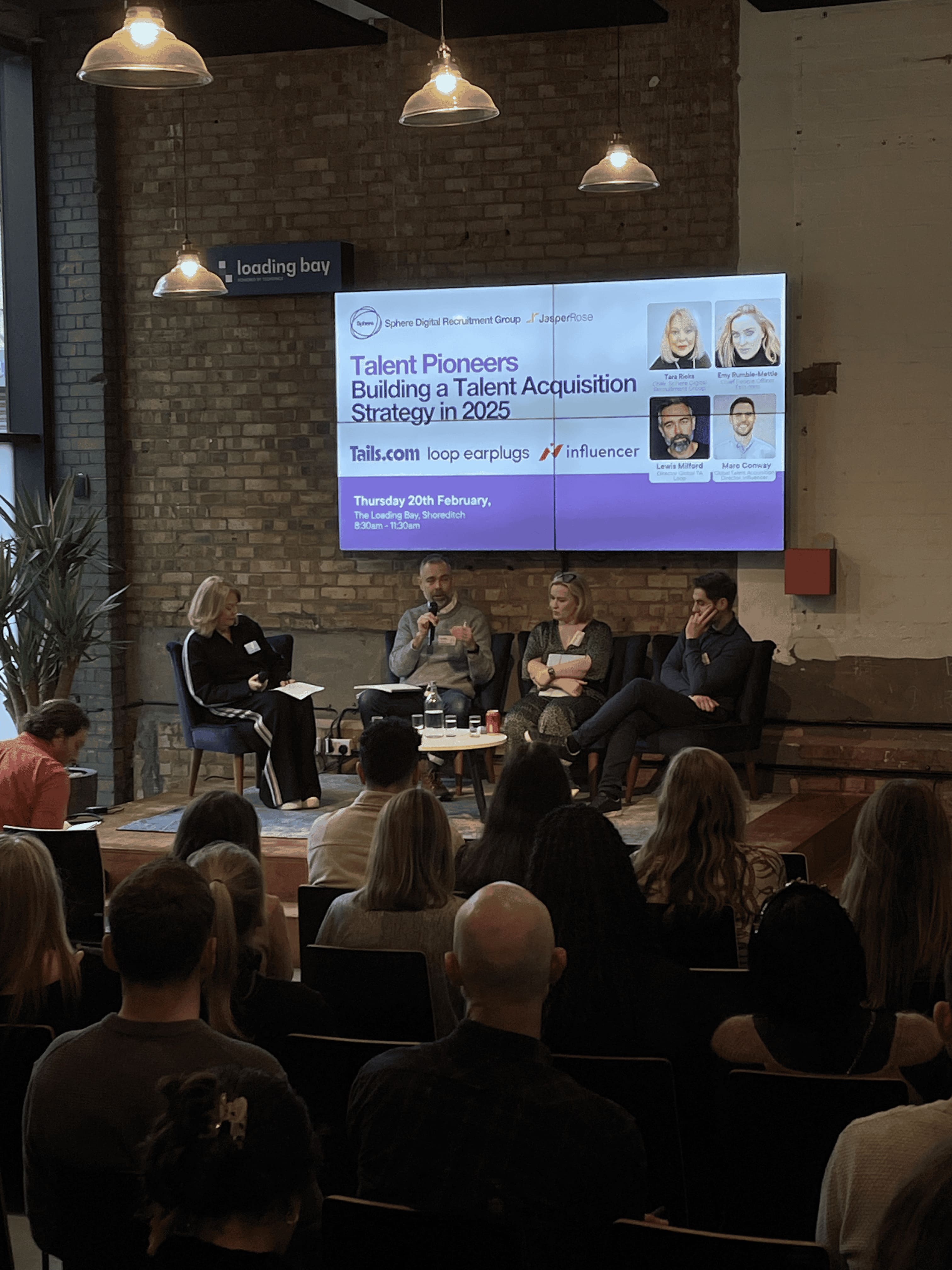
Juggling your Career with Parenthood
16 Dec, 20205 minsReturning to work after having a baby can be daunting for many families. The pressures of it...

Returning to work after having a baby can be daunting for many families. The pressures of it making financial sense because of the cost of childcare, the guilt of leaving your baby, and the stories we tell ourselves about the value we bring to businesses.
In the 2nd season of our Life in Digital podcast, we focused on parents returning to work. We spoke with 4 incredible leaders in the digital sector about their experience of parenthood and managing their careers.
All 4 guests, Ete Davies (CEO of Engine UK), Marie Wright (Executive Coach), Claire Leon (Co-Founder at Acorn-i) and Niki Stoker (COO at A Million Ads), had different experiences of juggling their career and parenthood. It is clear from those conversations, that there is no 'perfect' way to raise a family and everyone must do what they feel is best for them and their family.
Taking a career break
Maternity and paternity leave can be of varying lengths: Statutory Paternity Pay's weekly rate is £151.20 or 90% of their average weekly earnings and covers 1-2 weeks (read more here).
Your statutory maternity pay lasts up to 39 weeks, made up of: 6 weeks getting 90% of your average weekly pay (before tax) 33 weeks getting either £151.20 a week or 90% of your average weekly pay (before tax) - whichever is less (read more here).
Your employer may offer enhanced maternity and paternity leave.
Marie Wright found that the decision to stay home was best for her and her family. After 13 years of being a stay at home parent, she decided to make the move back into the corporate world. But 13 years away had caused her to lose her "corporate confidence".
When taking a longer leave from work, she says "we tell stories about ourselves", these can negatively affect how we see our worth in returning to work.
How to rectify that? Marie (who is a brilliant executive and life coach) recommends writing down everything you're good at - you'll surprise yourself! Then, it's about planning around what's important to you. Most parents returning to work ask for the same things: time, trust and flexibility, and find a career that ticks those boxes.
Working as a single parent
As both the breadwinner and the main care-giver, Ete Davies (CEO of Engine UK) found his son Levi's childhood tricky to navigate; he was making a lateral move from senior project management positions into MD and CEO positions at the time same time his son was going through struggles in school.
Ete originally suggested to his employer to go down to a part-time contract to manage both roles but his manager didn't want to impact his salary negatively. Instead, he worked around Levi's schedule (something that became easier once he was in school). During this time, Ete stressed the importance of time and trust from employers.
Giving up the guilt
The topic of our conversation with Claire Leon (Co-Founder of Acorn-i) stemmed from a conversation she had with a midwife when having her 1st child; Claire has experienced a difficult pregnancy and was struggling to breastfeed, in that moment, a midwife proclaimed "welcome to parenthood, guilt is the number 1 feeling (apart from love)... now it's breastfeeding, tomorrow it will be wotsits or the plain rice cake...".
Light bulb!
There is no perfect way to parent. We are all doing our best. Whether that's being a stay at home parent, putting your child through childcare or feeling like you're doing neither job well enough.
For Claire, her time at Amazon, was an eye-opener for shared parental leave, something we expect to see a lot more of, especially for more mid-large sized businesses. If it's available to you, being able to share the responsibilities around the house with a partner can free you both up to invest more time in your respective careers.
Time is valuable
The importance of time tied all 4 interviews together. For Claire and Niki, returning to work on a part-time basis, to begin with, allowed them to continue their career and still have quality time with their children.
Niki found there was pressure to return to work sooner than she was ready. This ended in her handing in her notice unexpectedly: "I hadn't planned to hand in my notice that day..." The time that followed handing in her notice was a period of reflection, rediscovering what she enjoyed and was good at.
All 4 guests stressed the importance of having an open dialogue with your employer about what you need when it comes to managing your time. The good news about 2020 is that more and more companies have worked out how to use flexible and remote working effectively.
Childcare
Parents now pay an average of over £6,800 per year, for just a part-time nursery place. This can be a serious blocker for the primary care-giver to return to work.
Claire stressed the importance of "looking at your potential" and not focusing on the short term financial losses IF you want to continue to work. Without childcare, she wouldn't have been able to grow her scale-up technology business.
Your support system is important - whether you're able to rely on parents, friends, or are in a position to pay for help. If you want to return to work but it's going to cost more in childcare, Claire says to still go for it! "It's about having a choice".





